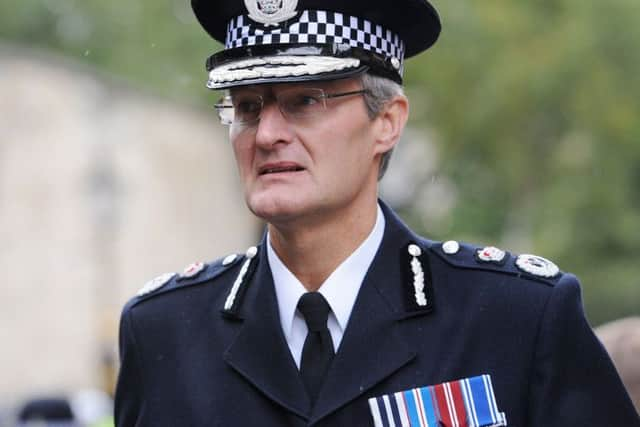Could David Crompton High Court ruling stop crime tsars from firing Chief Constables in future?


The chairwoman of the body representing police and crime commissioners says there is “considerable concern” about whether the overturning of the decision by Dr Alan Billings is consistent with the legislation drawn up when the elected role was created in 2011.
Mr Crompton, who was ousted from his job last year in a decision that has so far cost taxpayers £300,000, has criticised the South Yorkshire police and crime commissioner for the decision which was this month quashed by High Court judges.
Advertisement
Hide AdAdvertisement
Hide AdAfter the ruling last week, Dame Vera Baird, chair of the Association of Police and Crime Commissioners (APCC), said it raised issues “which may merit further clarification”.


She said she would speak with new policing minister Nick Hurd MP “in the near future and will be looking to raise a range of matters relating to policing, including some of those raised in this judgement”.
Dame Vera told The Yorkshire Post: “Police and Crime Commissioners were brought into being by legislation to hold Chief Constables to account on behalf of the public.
“There is considerable concern, going beyond the APCC and Dr Billings, as to whether the approach to decision-making taken by the court, in this case, is consistent with that legislative purpose and the way in which that purpose was addressed in Parliamentary debate, indicating how the Government intended it to work.
Advertisement
Hide AdAdvertisement
Hide Ad“The Association will be able to explore those issues with Home Office Ministers shortly.”


The sacking of Mr Crompton was carried out using powers granted under Section 38 of the Police Reform and Social Responsibility Act 2011.
It is feared the judgement that the decision was unlawful will hinder the ability of PCCs to fire chief constables in future if the need arises.
Earlier this week, Mr Crompton said the decision to deal with the constitutional issues raised by the judgement through Parliamentary means “should be greeted with concern and incredulity”.
Advertisement
Hide AdAdvertisement
Hide AdLast week, Dr Billings said he would not be resigning as a result of the ruling, as doing so would trigger a by-election costing £1.5m and would plunge the scandal-hit police force into “another period of uncertainty and turbulence”.
He started proceedings which led to him forcing out Mr Crompton in April 2016 over a statement he issued at the end of the Hillsborough disaster inquests.
A jury concluded that police conduct contributed to or caused the deaths of the football fans in the stadium disaster in 1989.
The families of those who died complained that a line of questioning by South Yorkshire Police during the inquests was designed to try to blame the Liverpool supporters.
Advertisement
Hide AdAdvertisement
Hide AdAfter the inquests, Mr Crompton issued a statement viewed by some as appearing to justify the questioning of the fans’ conduct.
Dr Billings suspended him and later ordered his resignation, claiming the statement showed Mr Crompton did not “grasp the gravity of the situation” and that it was “insensitive and damaged both the force and the chief constable himself”.
But Mr Crompton challenged the decision in the High Court, where judges ruled in his favour. They said the sacking was ‘wholly disproportionate’.